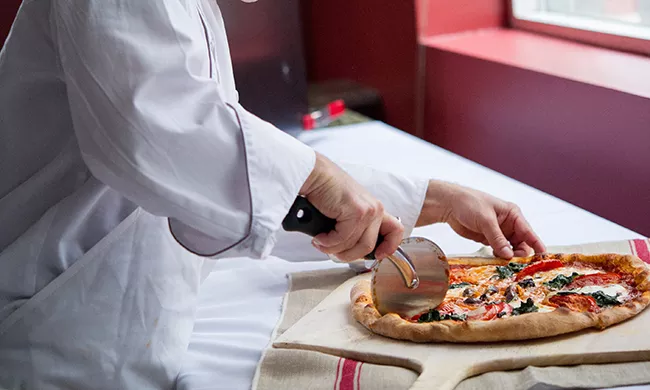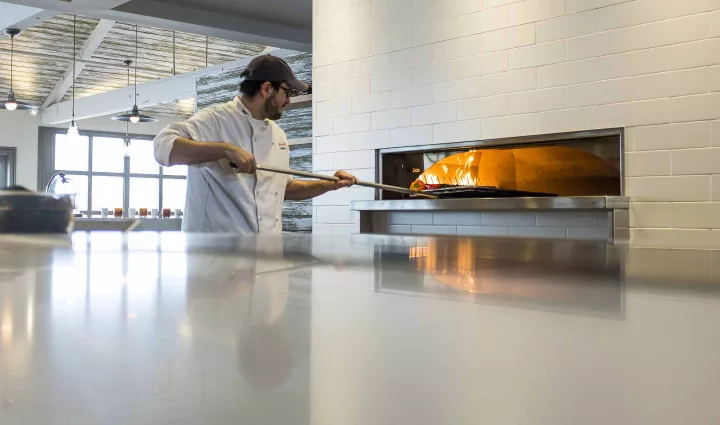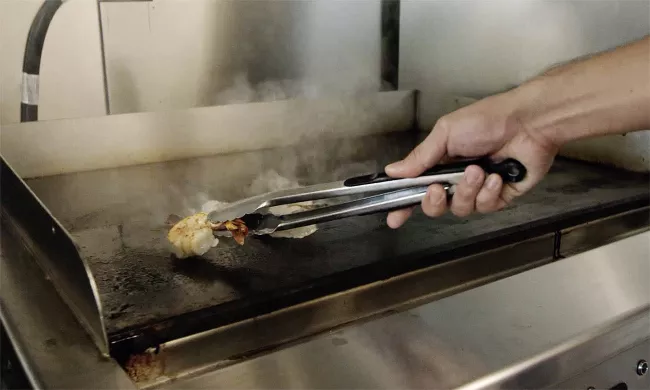
Fire Deck Hearth Oven
Though clay ovens have been used to harness fire for more than 25,000 years, they were first popularized in the United States in 1905 by NYC pizzeria Lombardi’s—and were re-popularized in the 1980s by such west coast culinary leaders as Alice Waters and Wolfgang Puck. What makes a Wood Stone oven exceptional is the ceramics — the foundation for the cooking hearth and the oven’s dome, as well as the broilers. Over the course of twenty-five years, the company has made an incredible investment in ceramic technology, developing three different formulas for the various components of their ovens.


 When ICE set out to design the ultimate center for culinary creativity in our lower Manhattan campus, we wanted to provide students with access to more than the traditional burners and stoves.
When ICE set out to design the ultimate center for culinary creativity in our lower Manhattan campus, we wanted to provide students with access to more than the traditional burners and stoves.